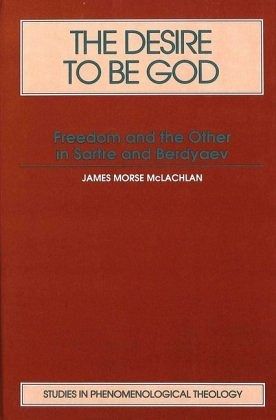Nicht lieferbar

The Desire to be God
Freedom and the Other in Sartre and Berdyaev
Versandkostenfrei!
Nicht lieferbar
Jean-Paul Sartre and Nicholas Berdyaev were contemporaries in the Paris of the thirties and forties. Sartre became the most famous existentialist author and was also a politically active Marxist. Berdyaev had been a Marxist and political activist but converted to Christianity and became one of the inspirations of the French personalist movement and a key exponent of religious existentialism. This study focuses on the central concern of both philosophers: the question of freedom. Sartre argued in Being and Nothingness that God is incompatible with human freedom. Berdyaev argues that God is not ...
Jean-Paul Sartre and Nicholas Berdyaev were contemporaries in the Paris of the thirties and forties. Sartre became the most famous existentialist author and was also a politically active Marxist. Berdyaev had been a Marxist and political activist but converted to Christianity and became one of the inspirations of the French personalist movement and a key exponent of religious existentialism. This study focuses on the central concern of both philosophers: the question of freedom. Sartre argued in Being and Nothingness that God is incompatible with human freedom. Berdyaev argues that God is not only compatible but necessary to freedom. This study reveals two ironies: Berdyaev's God is a more radical departure from traditional Western theism than Sartre's atheism. And Berdyaev's idea of freedom presents the more radical alternative to that tradition.



